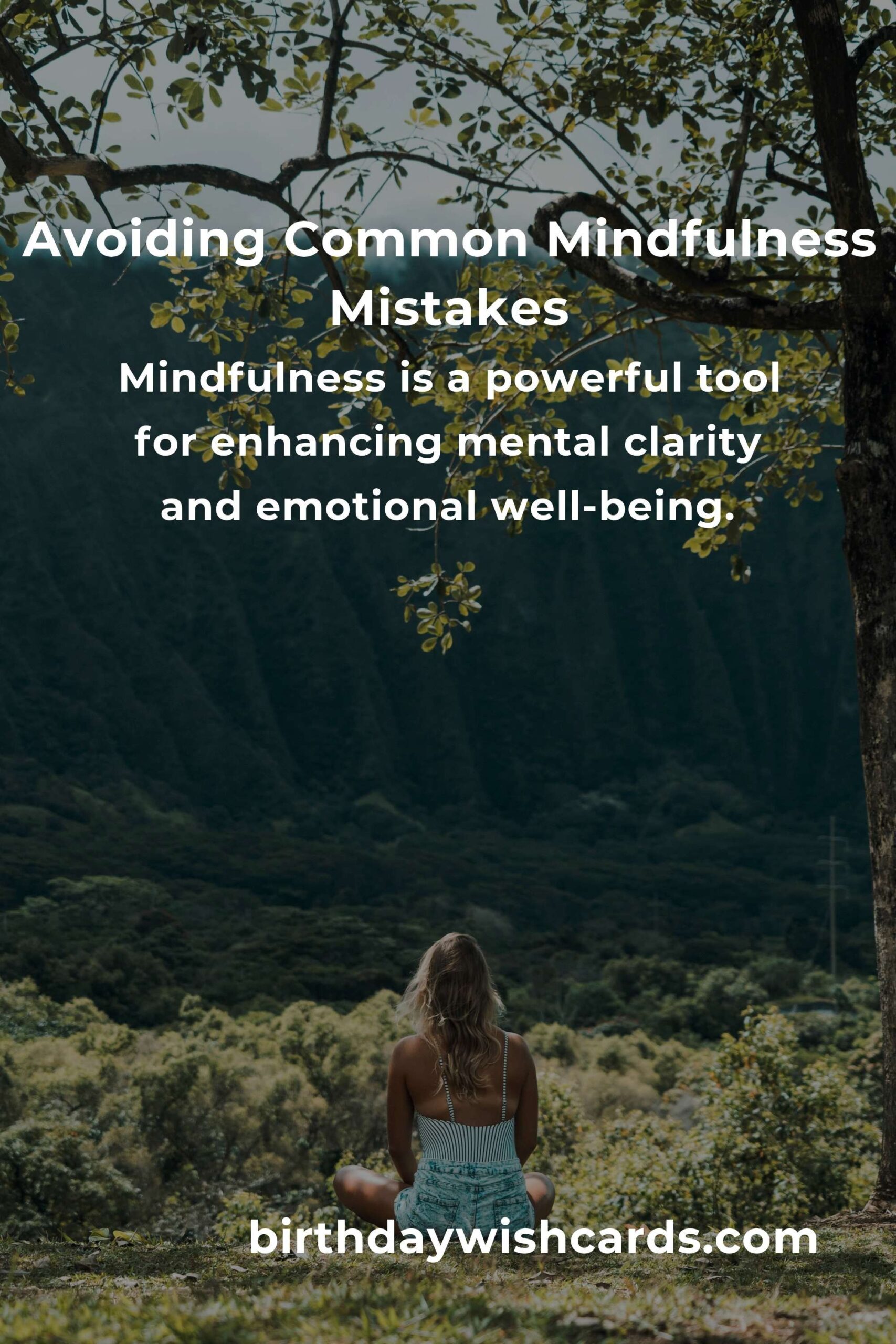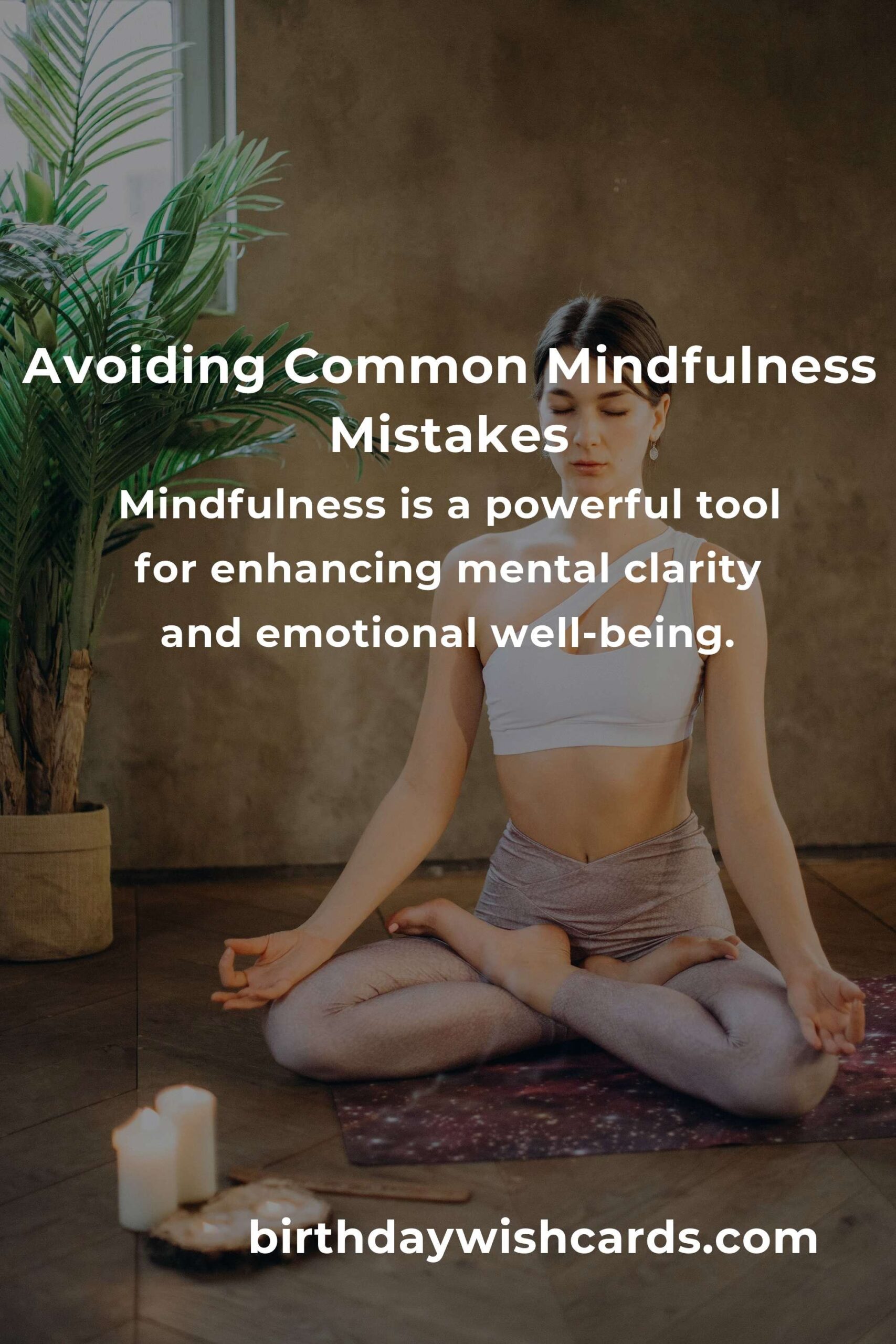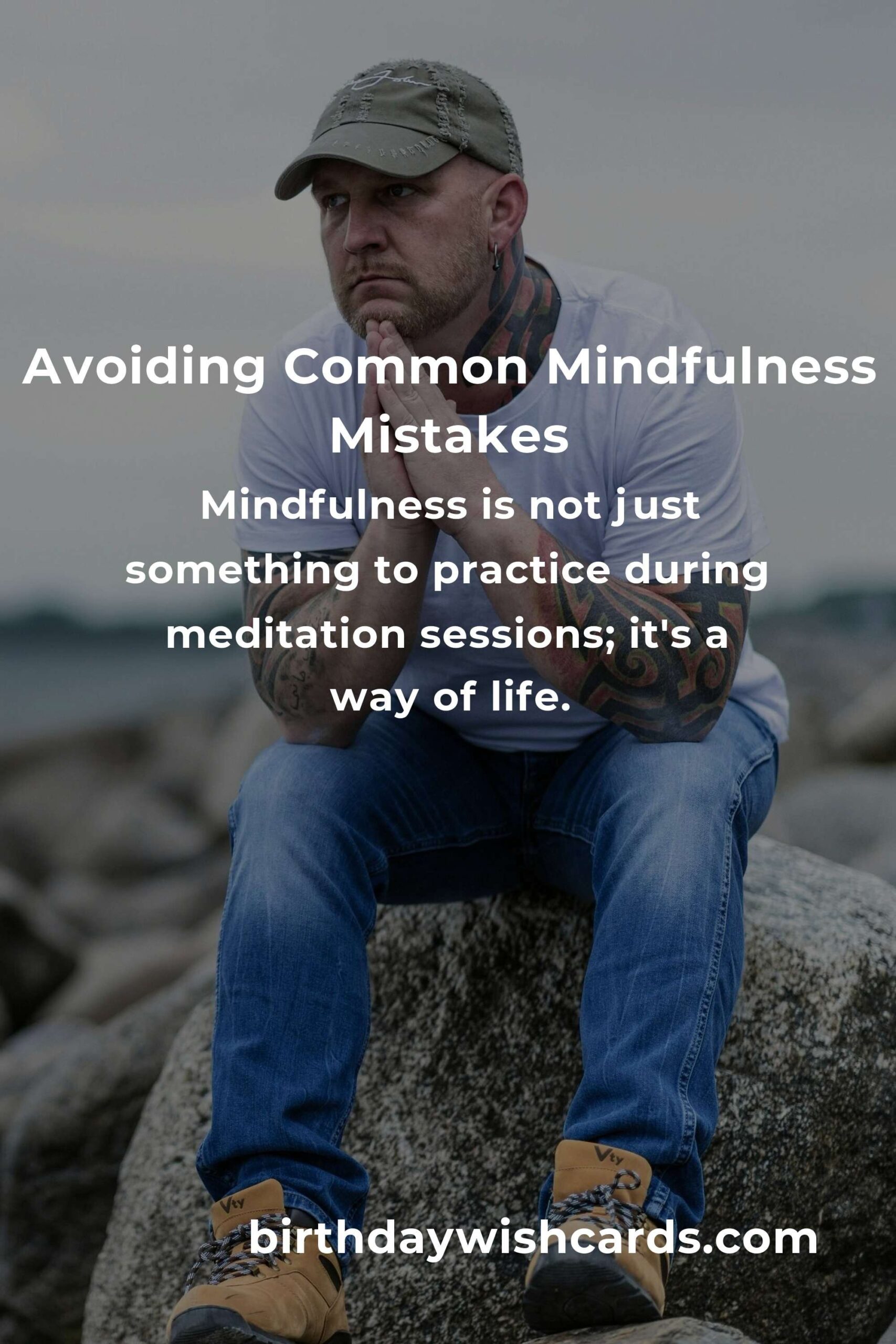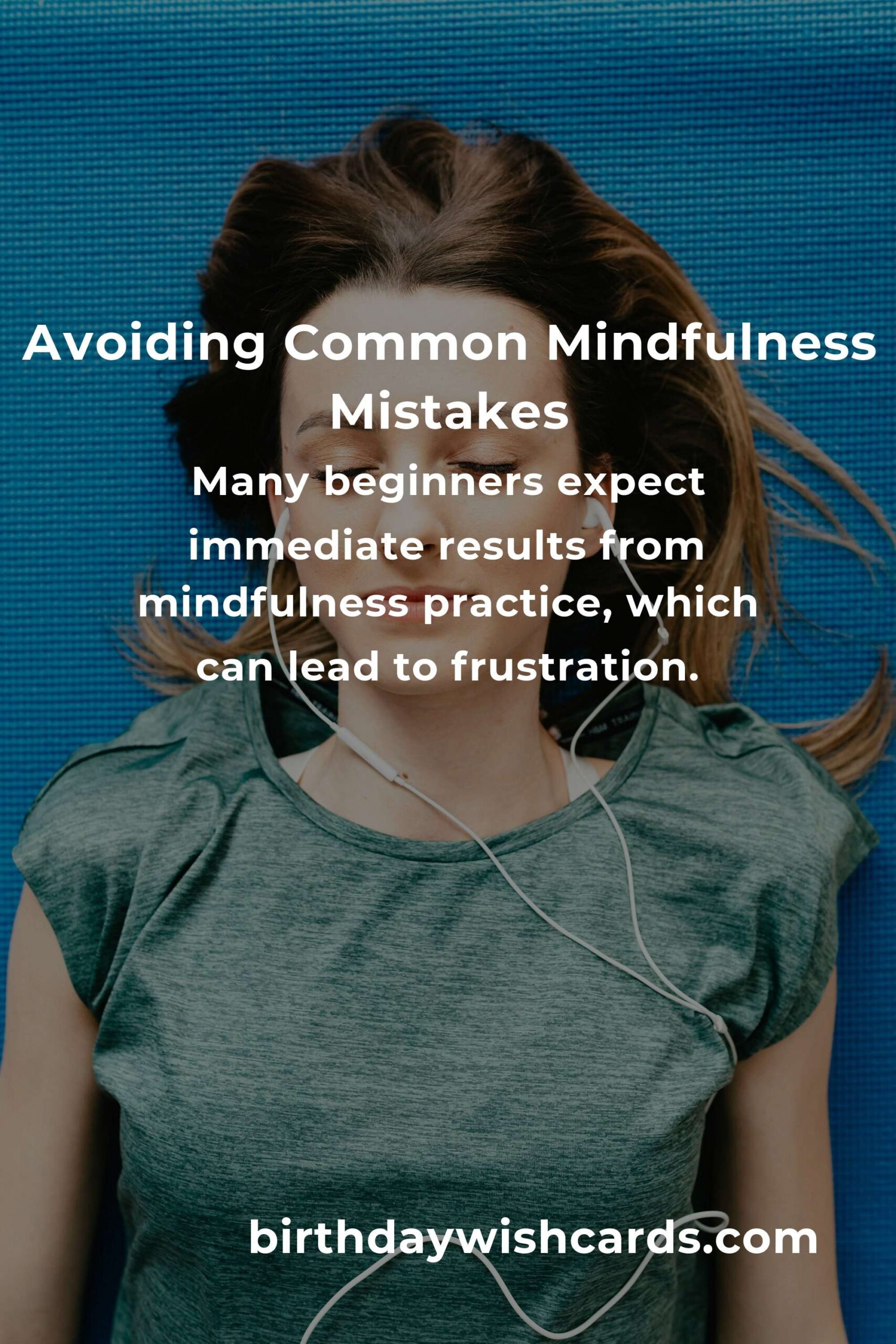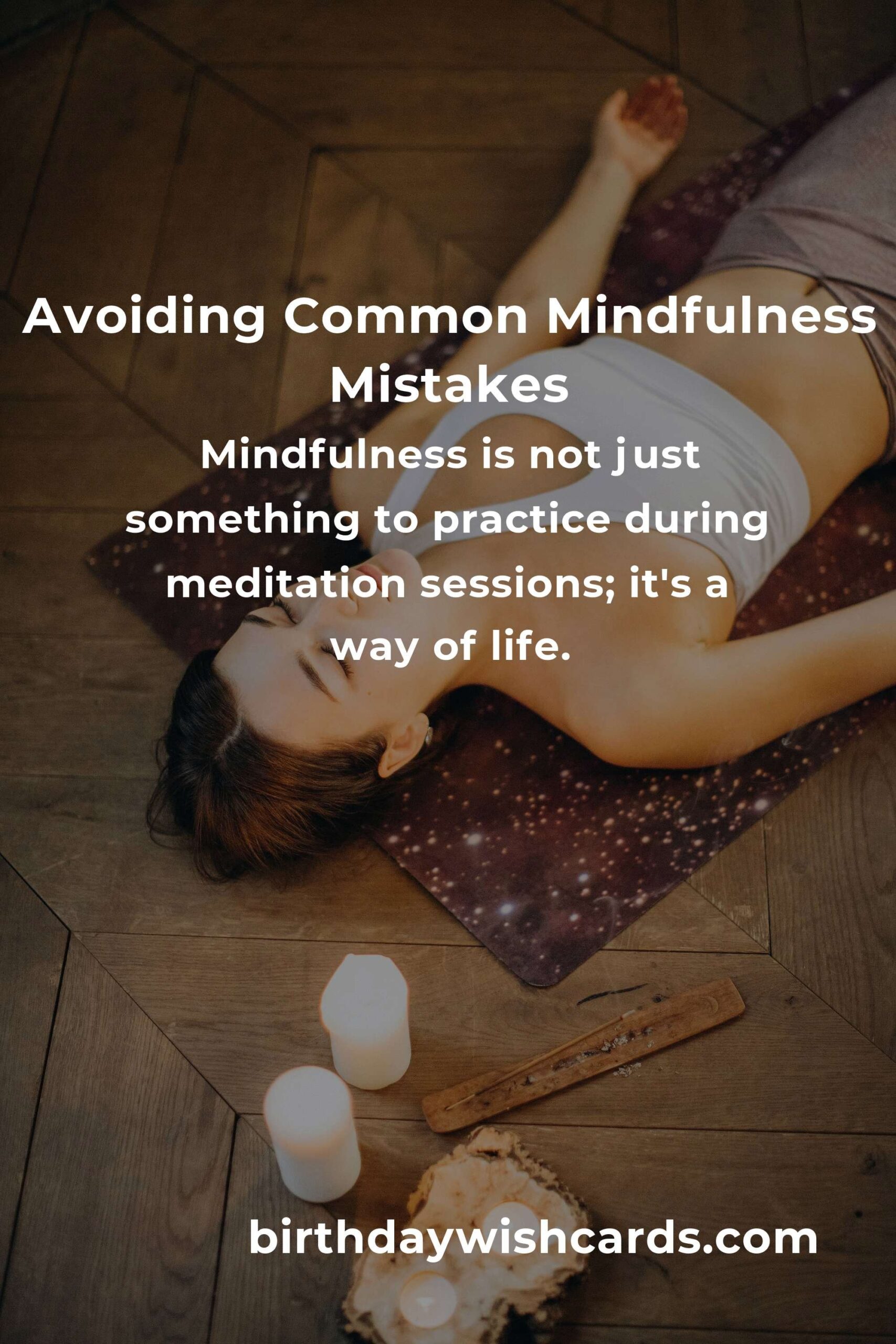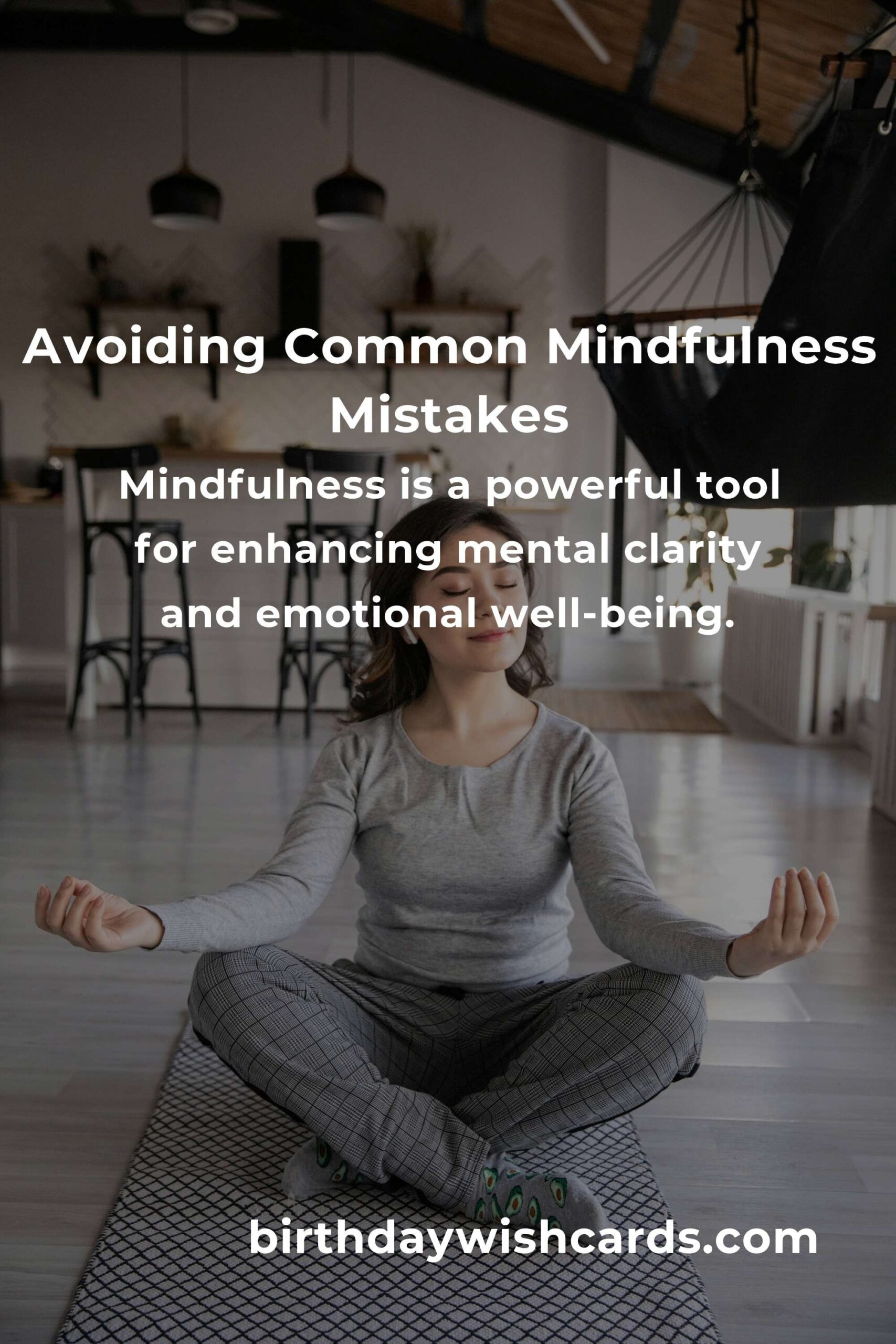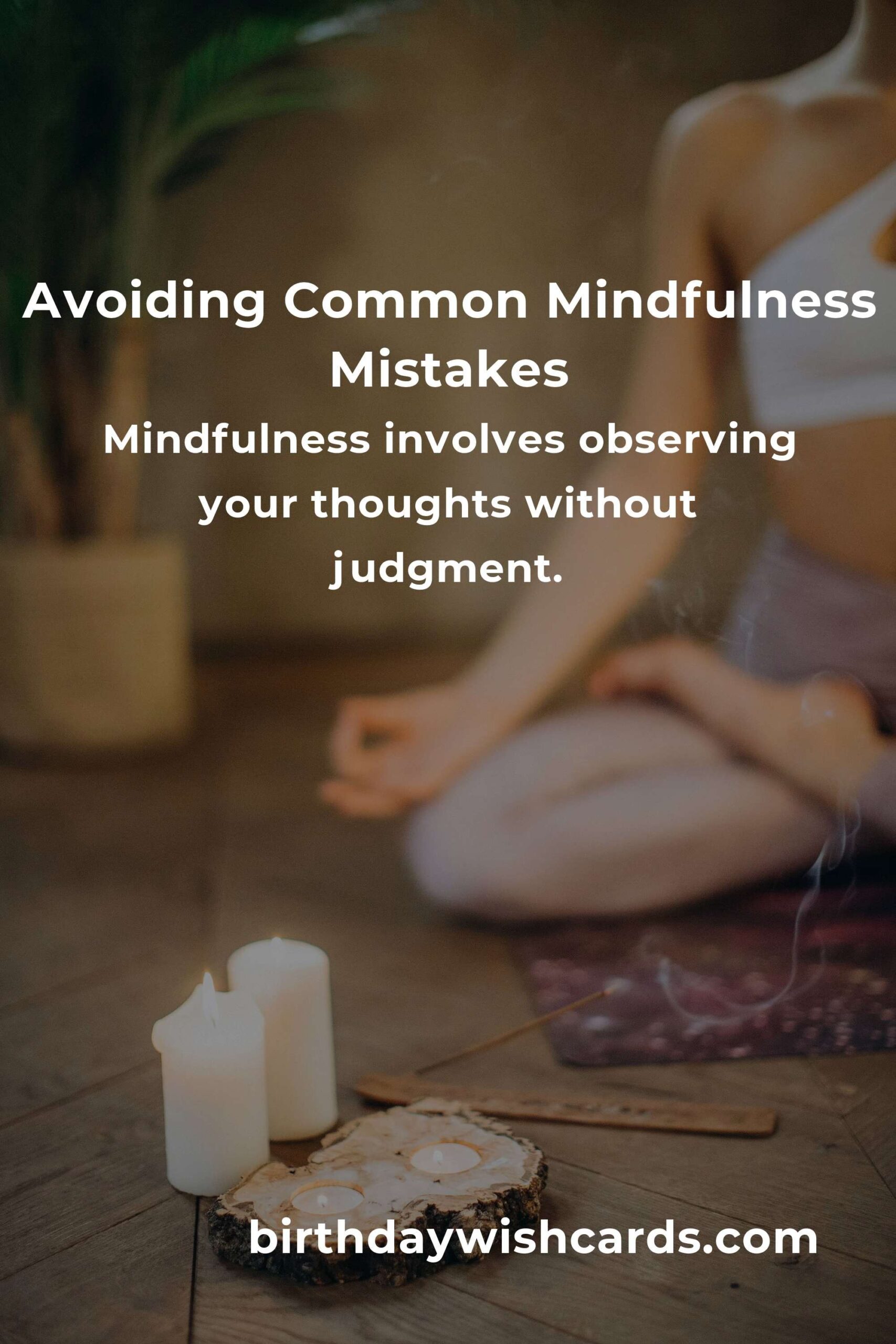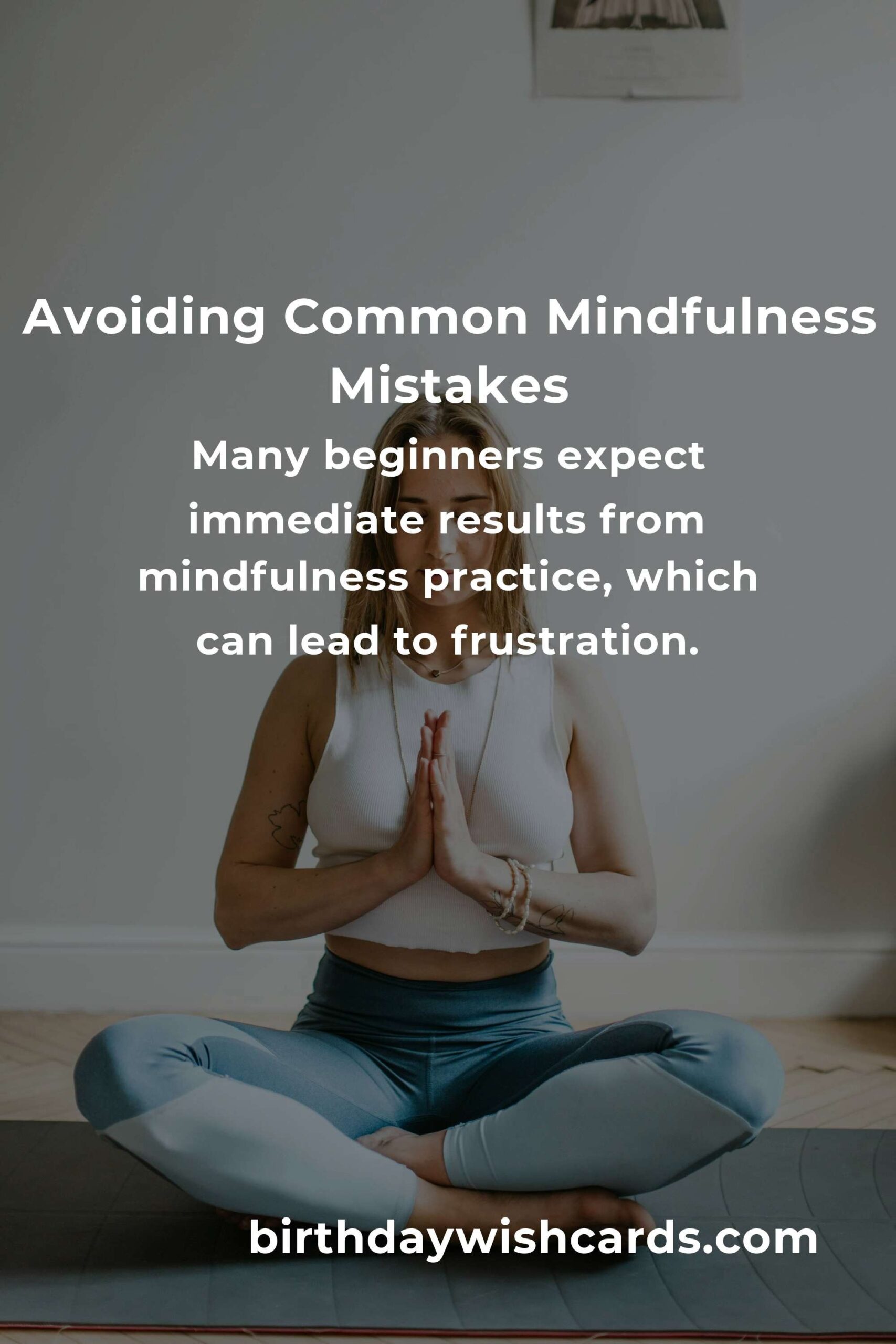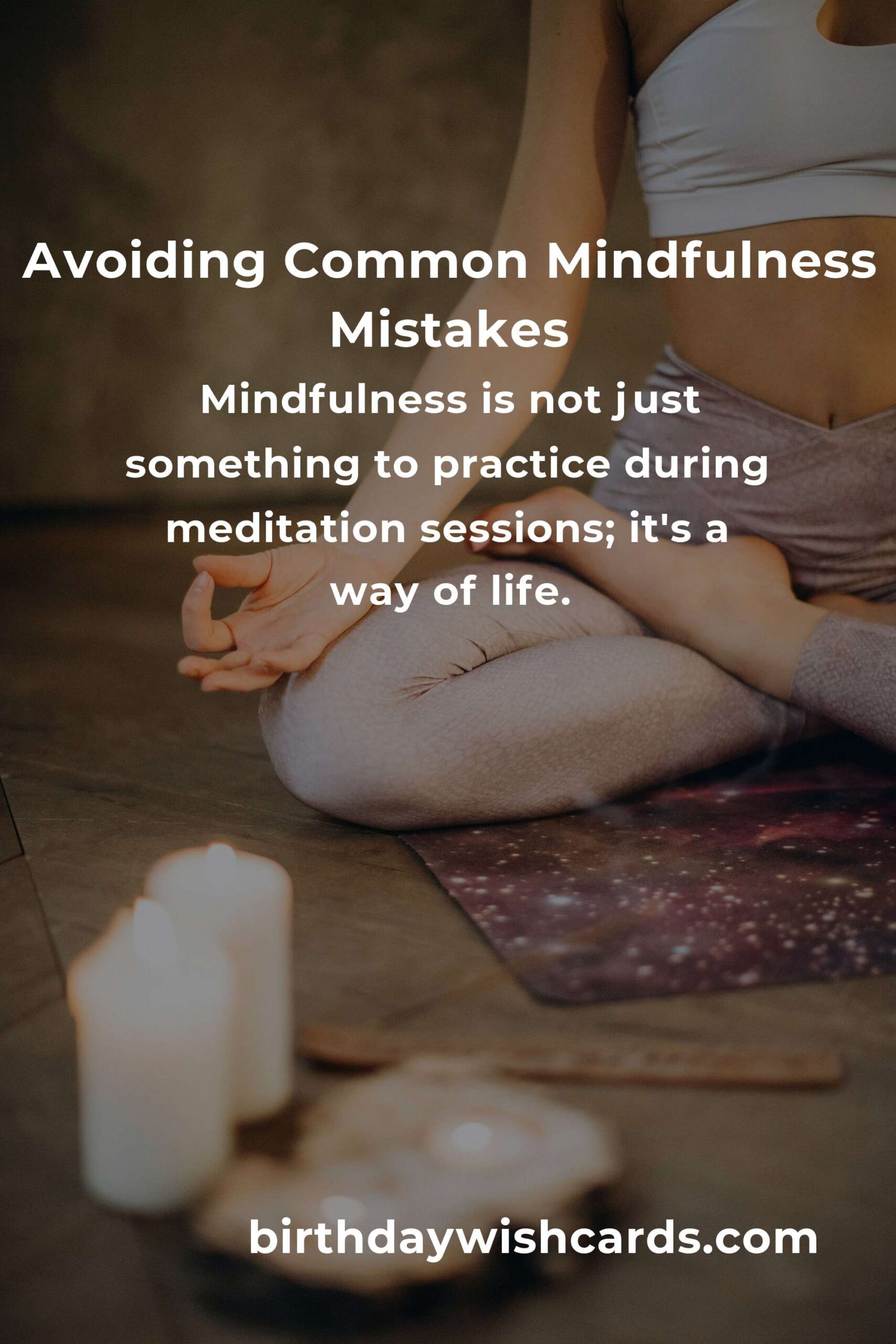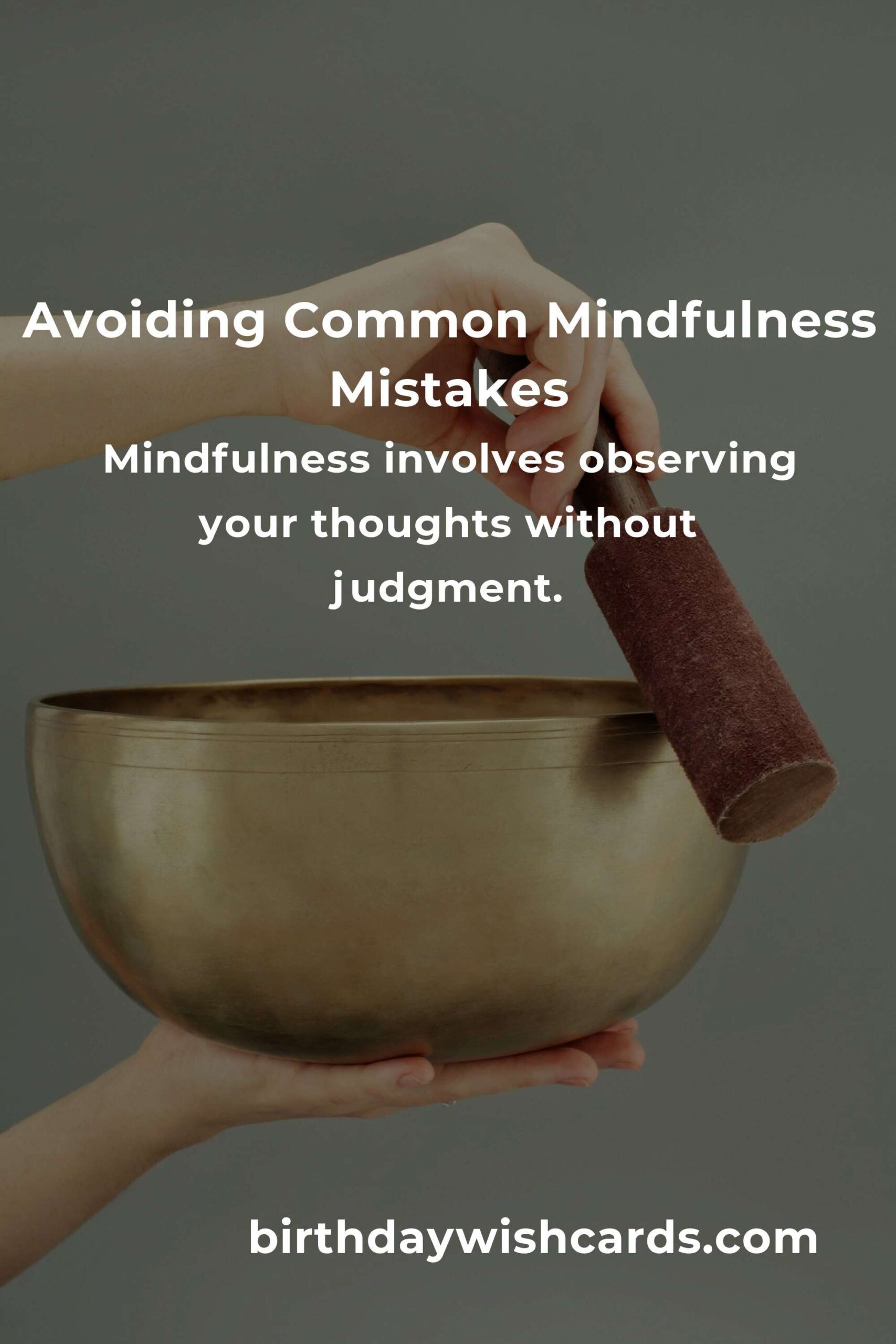
Mindfulness is a powerful tool for enhancing mental clarity and emotional well-being. However, many people make mistakes that can hinder their progress. Understanding these common pitfalls and learning how to avoid them can help you cultivate a more effective mindfulness practice.
Not Setting Clear Intentions
One common mistake in mindfulness practice is not setting clear intentions. Without a clear purpose, mindfulness can become aimless. Before beginning your practice, take a moment to identify what you hope to achieve. Whether it’s reducing stress, improving focus, or cultivating gratitude, having a clear intention can guide your sessions.
Expecting Immediate Results
Many beginners expect immediate results from mindfulness practice, which can lead to frustration. Mindfulness is a skill that takes time to develop. Be patient with yourself and recognize that growth is gradual. Celebrate small victories along the way to maintain motivation.
Judging Your Thoughts
Mindfulness involves observing your thoughts without judgment. However, many people fall into the trap of criticizing themselves for having a wandering mind. Instead, practice self-compassion and recognize that it’s natural for the mind to wander. Gently bring your focus back to the present moment.
Inconsistent Practice
Consistency is key in mindfulness practice. It’s common for people to skip sessions due to a busy schedule or lack of motivation. To avoid this, set aside a specific time each day for mindfulness. Even a few minutes can make a significant difference if practiced regularly.
Overcomplicating the Practice
Mindfulness is meant to be simple, yet some people overcomplicate it by trying to follow complex techniques or using too many apps. Start with basic practices such as focusing on your breath or doing a body scan. Gradually explore other methods as you become more comfortable.
Ignoring Physical Sensations
Another mistake is ignoring physical sensations during mindfulness practice. Pay attention to how your body feels, as this can provide valuable insights into your mental state. Notice any areas of tension or relaxation and explore what these sensations might be telling you.
Neglecting to Apply Mindfulness to Daily Life
Mindfulness is not just something to practice during meditation sessions; it’s a way of life. Many people forget to apply mindfulness to daily activities. Try incorporating mindfulness into routine tasks like eating, walking, or even washing dishes to deepen your practice.
Conclusion
By being aware of these common mistakes and taking steps to avoid them, you can enhance the effectiveness of your mindfulness practice. Remember that mindfulness is a journey, not a destination. Approach it with patience, compassion, and an open mind, and you’ll likely find it to be a rewarding experience.
Mindfulness is a powerful tool for enhancing mental clarity and emotional well-being. Many beginners expect immediate results from mindfulness practice, which can lead to frustration. Mindfulness involves observing your thoughts without judgment. Consistency is key in mindfulness practice. Mindfulness is not just something to practice during meditation sessions; it’s a way of life.
#Mindfulness #MentalHealth #Wellbeing #Meditation

